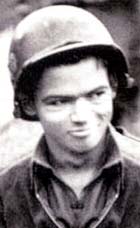“I always admired Patton. Oh, sure, the stupid bastard was crazy.”
The Brass Ring (1971)
Contexte: If you're a leader, you don't push wet spaghetti, you pull it. The U. S. Army still has to learn that. The British understand it. Patton understood it. I always admired Patton. Oh, sure, the stupid bastard was crazy. He was insane. He thought he was living in the Dark Ages. Soldiers were peasants to him. I didn't like that attitude, but I certainly respected his theories and the techniques he used to get his men out of their foxholes.
